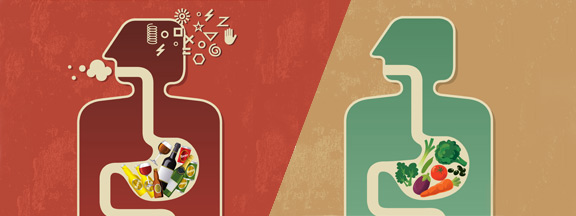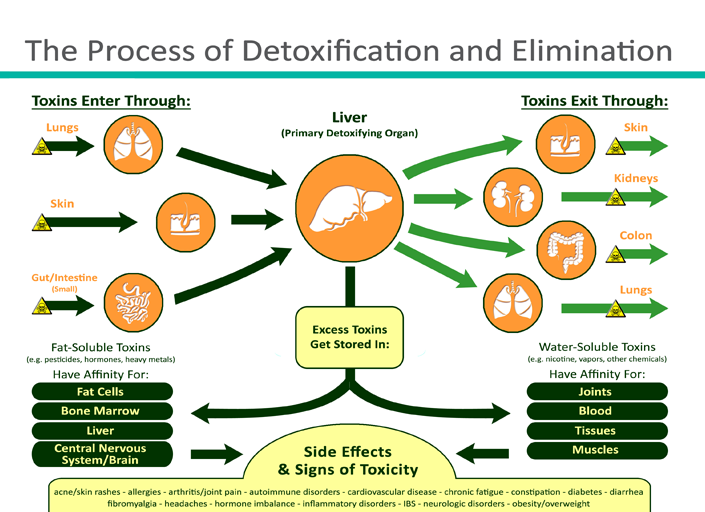
Let's face it—discussing bowel movements isn't the most glamorous topic. However, maintaining regularity is crucial for overall health. While many turn to detox teas and supplements, the most effective methods to promote healthy bowel movements are natural and straightforward. This article explores various strategies to enhance digestive health and ensure regularity.
Click here for a consultation with a functional medicine doctor to learn how to detox properly!

Water's Role in Digestion
Adequate hydration is essential for softening stool and facilitating its movement through the intestines. Dehydration can lead to constipation, making it harder for your body to eliminate waste.
Best Practices:
Types of Fiber
Fiber adds bulk to stool and aids its passage through the digestive system. There are two primary types:
Fiber-Rich Foods:
Aim for at least 25-30 grams of fiber daily to promote regular bowel movements.

Many people underestimate how much their diet affects digestion. While social media trends promote detox teas and juices, the best detox method is simply having regular, healthy bowel movements. The key to good digestion starts with consuming whole foods, rich in good fats, proteins, and fiber.
Inflammatory foods can wreak havoc on your gut, leading to either constipation or diarrhea. Highly processed foods, refined sugars, and artificial additives stress the digestive system, creating gut inflammation. This can result in:
To counteract these issues, focus on whole, unprocessed foods like lean proteins, healthy fats, and plenty of vegetables.
Hydration is crucial, but timing matters. Drinking too much water during meals dilutes stomach acid, reducing its ability to break down food. Instead:
This approach helps maintain the proper acidity levels in your stomach for optimal digestion.
Gut-Brain Connection
Chronic stress can negatively impact digestion, leading to issues like constipation. The gut and brain are closely linked, meaning emotional stress can affect intestinal function.
Stress Reduction Techniques:
Managing stress is essential for maintaining a healthy digestive system.
Exercise and Digestion
Physical activity stimulates intestinal contractions, helping waste move more efficiently through the digestive tract.
Effective Exercises:
A sedentary lifestyle can contribute to constipation, so incorporating regular exercise is beneficial.
Dietary Impact on Digestion
A well-balanced diet supports good gut bacteria, promotes regularity, and reduces inflammation.
Beneficial Foods:
Foods to Limit:
Focusing on whole, natural foods while limiting processed options can significantly improve digestive health.

Gut Microbiome Support
Probiotics are beneficial bacteria that improve digestion, while prebiotics serve as food for these bacteria.
Sources:
A healthy gut microbiome contributes to regular bowel movements and overall digestive health.
Optimal Positioning
Adopting the correct posture during bowel movements can facilitate easier passage of stool.
Tips:
Proper toilet habits can significantly impact the ease and regularity of bowel movements.
Supplemental Support
If dietary changes aren't sufficient, certain supplements may aid digestion:
Always consult a healthcare provider before starting new supplements to ensure they suit your situation.
Maintaining regular bowel movements is vital for overall health and well-being. Staying hydrated, consuming a fiber-rich diet, engaging in regular physical activity, managing stress, and supporting your gut microbiome can all naturally promote healthy digestion. Implementing these strategies can lead to significant improvements in digestive health.
How often should I have a bowel movement?
Most people should have at least one bowel movement daily, though frequency can vary. Consider evaluating your diet and lifestyle if you're experiencing discomfort or irregularity.
What are the best foods to relieve constipation quickly?
High-fiber foods like prunes, flaxseeds, and leafy greens are effective. Additionally, staying hydrated and engaging in physical activity can help alleviate constipation.
Can stress cause constipation?
Yes, stress can affect digestion by slowing down intestinal movement. Incorporating stress-reduction techniques such as yoga and meditation can improve bowel regularity.
Is coffee good or bad for digestion?
Coffee can stimulate bowel movements in some individuals, but excessive consumption may lead to dehydration and irritate the gut. Moderation is key.
Should I take laxatives for constipation?
Laxatives should be used sparingly and only under medical supervision. Frequent use can lead to dependency. It's best to address constipation through dietary and lifestyle changes.
====================
Recommended Products: